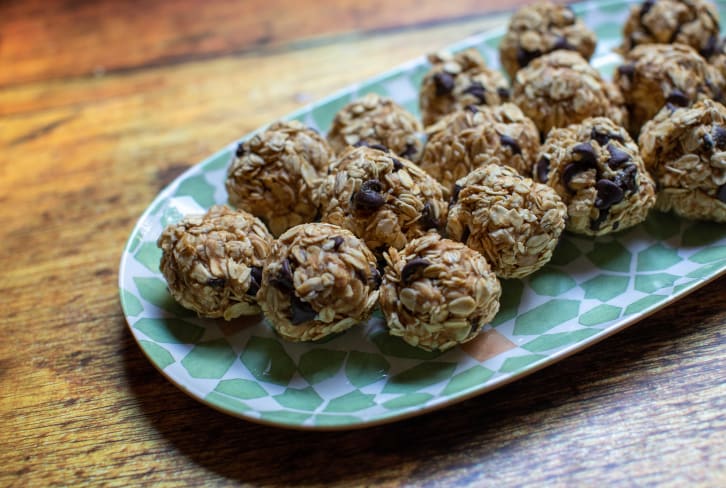Advertisement
This Lymphatic Cleanse Can Balance Your Whole Body In 5 Simple Steps

Jennifer Weinberg is a preventive and lifestyle medicine physician, author, corporate wellness specialist, and the founder of the Simple | Pure | Whole Wellness Method. She received her M.D. from the University of Pennsylvania, and holds a master’s in Public Health from Johns Hopkins, along with a master’s in Bioethics from the University of Pennsylvania.
The lymphatic system is one of the most overlooked, yet significant systems in the body. This expansive system travels throughout the body to remove waste from every cell while helping to regulate the immune system. It includes a complex network of vessels, ducts, lymph nodes, the spleen, the thymus, the adenoids, and the tonsils.
The lymphatic vessels act like a giant drainage system for the body that needs to stay clear for it to work properly. Just like in your home if the drains are clogged in your toilet or sink, you can’t get rid of waste effectively—the same is true for your body. Stagnant lymph flow leads to waste and toxin buildup, weakening immunity and leading to a wide variety of health issues.
If you are experiencing symptoms of lymphatic congestion, it may be time for a lymphatic cleanse. Here's exactly how to drain those lymph nodes:
1. Detox your environment.
The lymph must deal with the body's "waste products" that are produced internally like dead cells as well as toxins that are introduced from the external environment. Systemic inflammation creates congestion and swelling in the tissues, which impairs lymphatic flow. Oxidative stress damages the lymph vessels and breaks down their ability to effectively transport lymph fluid and wastes.
Therefore, it is important to reduce your exposure to chemicals in food, air, personal care products, and water while increasing your intake of antioxidants and anti-inflammatory nutrients to prevent damage. Opt for an organic, anti-inflammatory diet filled with green leafy vegetables, cruciferous veggies, omega-3 fatty acids, and herbs and spices like ginger, turmeric, and garlic. Avoid processed additives, chemicals, and artificial ingredients.
2. Stay hydrated.
Lymph fluid is about 95 percent water and becomes thicker and less fluid when you are dehydrated. In fact, one of the most common causes of lymph congestion is dehydration. Stay well-hydrated by sipping warm purified water throughout the day to help keep your lymph flowing well. Avoid sugar-laden soft drinks, processed juices, sports drinks, and alcohol, which add an additional metabolic burden on the body as well as too much caffeine, which dehydrates the body.
3. Incorporate red and raw foods.
A sluggish digestive tract also congests the lymphatic system. Ayurvedic medicine teaches that naturally red foods like berries, pomegranates, cherries, cranberries, and beets keep the lymph moving freely. Beets are particularly valuable1 as they help thin the bile for healthy fat digestion, scrub the intestinal villi where the lymphatic vessels originate, and help keep the lymph flowing.
Incorporating raw foods into your diet is another way to keep the lymphatic system healthy. The naturally occurring enzymes and bioflavonoids2 in raw fruits and vegetables help to break down toxic buildup and free radicals while fiber promotes regular elimination and cleansing of the intestinal villi to keep the intestinal lymphatic system healthy.
4. Move your lymph naturally.
The lymphatic system does not have a built-in pump like the heart, which propels blood through the circulatory system, where it gets oxygenated, filtered, and circulated. Therefore, the lymphatic system relies on the contraction and relaxation of the muscles and joints to move the lymph. The rhythmic tensing and relaxing of the muscles during physical movement wring out the tissues and propel fluid through the lymphatic channels.
Laughter and deep breathing involve movement of the diaphragm and abdominal muscles that help push lymph through the vessels. Dry brushing and lymphatic massage also help to support healthy lymphatic flow in the skin-associated lymphatic tissue. The coarse bristles of a dry brush encourage movement of the lymph and blood in the underlying tissues, which helps move out built-up toxins. Brush or massage your body gently, working toward the heart and paying special attention to the head, neck, feet, breasts, and abdomen, where lymphatics are concentrated.
5. Cope with stress through mindfulness.
Oxidation and lymph congestion increase when you are physically and/or emotionally stressed, so having an effective routine for coping with daily stress is key. There are many mindfulness practices to help you cope with the inevitable stress of life and minimize its effects on your lymphatic system, digestion, and overall health including meditation and spending time in nature. Having the ability to slow down, pause, and remain calm in the present moment can allow you to decrease stress.
Practices like tai chi and yoga3 that coordinate the breath with movement can be especially effective at reducing the state of constant hyperarousal, which is detrimental to digestion and lymphatic health. When you learn to understand your emotions and responses to stress and adopt healthy ways to manage stress, your lymph and life will flow more smoothly.
How do you know if you're suffering from lymphatic congestion?
Almost every part of the body can be affected by poor waste removal in the lymphatic system. When your lymph drains become congested you may notice:
- Stiffness, especially in the morning
- Fatigue
- Itchy and dry skin
- Bloating
- Breast swelling with each cycle
- Holding on to water
- Brain fog
- Swollen glands
- Stubborn weight gain
- Chronic sinusitis, sore throats, colds, or ear issues
- Cellulite
- Cold hands and feet
As with any cleansing or detoxification program, be sure to check with your physician before making changes that are appropriate for you. When your lymph is flowing well, it will support natural revitalization and cleansing of your body. Follow these daily habits and exercises to naturally decongest your lymphatic system for vibrant skin, digestion, and health!
Watch Next
Enjoy some of our favorite clips from classes
Enjoy some of our favorite clips from classes
What Is Meditation?
Mindfulness/Spirituality | Light Watkins
Box Breathing
Mindfulness/Spirituality | Gwen Dittmar
What Breathwork Can Address
Mindfulness/Spirituality | Gwen Dittmar
The 8 Limbs of Yoga - What is Asana?
Yoga | Caley Alyssa
Two Standing Postures to Open Up Tight Hips
Yoga | Caley Alyssa
How Plants Can Optimize Athletic Performance
Nutrition | Rich Roll
What to Eat Before a Workout
Nutrition | Rich Roll
How Ayurveda Helps Us Navigate Modern Life
Nutrition | Sahara Rose
Messages About Love & Relationships
Love & Relationships | Esther Perel
Love Languages
Love & Relationships | Esther Perel
What Is Meditation?
Box Breathing
What Breathwork Can Address
The 8 Limbs of Yoga - What is Asana?
Two Standing Postures to Open Up Tight Hips
How Plants Can Optimize Athletic Performance
What to Eat Before a Workout
How Ayurveda Helps Us Navigate Modern Life
Messages About Love & Relationships
Love Languages
Advertisement

These Peanut Butter Cup Protein Bites Make The Perfect On-The-Go Snack
Molly Knudsen, M.S., RDN










